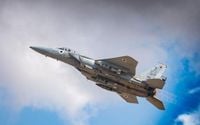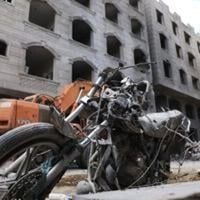The skies above Sanaa, Yemen, erupted in violence on September 25, 2025, as the Israel Defense Forces (IDF) launched a massive airstrike campaign targeting the Houthi-controlled capital. The operation, which Israeli officials dubbed 'Passing Package,' marked a dramatic escalation in the already volatile exchanges between Israel and the Iranian-backed Houthi rebels. This latest round of hostilities followed a Houthi drone attack on a shopping center in Eilat, southern Israel, that wounded more than 20 people just a day prior—an incident that pierced Israel's formidable air defenses and sent shockwaves through the region.
According to the Houthi-controlled health ministry in northern Yemen, the Israeli strikes left at least nine people dead, including four children, two women, and three older people. The ministry also reported that 142 people were injured, with 59 children, 35 women, and 80 older people among the wounded. Medics continued searching for victims believed to be trapped under the rubble, suggesting the death toll could rise. The IDF, for its part, contended that the number of Houthi fighters killed was even higher, though it did not provide specific figures.
The air campaign was sweeping in scale and precision. The Israeli military said it deployed about 20 jets and dropped more than 65 munitions on seven key targets. These included the Houthi General Staff Command headquarters, security and intelligence compounds, military public relations HQ, and several military camps where weapons and operatives were based. A power station was also struck, and the IDF released a list of the locations targeted to underscore the breadth of the operation. The strikes came while a speech from Houthi leader Abdulmalik al Houthi was being broadcast, a detail that did not go unnoticed by observers on both sides of the conflict.
Israeli Defense Minister Israel Katz was unambiguous about the intent and impact of the operation. "We have now delivered a powerful strike on numerous terror targets of the Houthi terror organization in Sana’a as part of Operation ‘Passing Package.’ Air Force aircraft attacked several military camps, including a camp of the Houthi General Staff, eliminated dozens of Houthi terror operatives, and destroyed stockpiles of UAVs and weaponry," Katz stated, as reported by Long War Journal. The emphasis on destroying unmanned aerial vehicle (UAV) stockpiles was likely a direct response to the recent spate of Houthi drone attacks targeting Israeli cities.
On the ground in Sanaa, the aftermath was chaotic and devastating. Residents described scenes of terror and confusion as explosions rocked the city. Ahmed al-Mahweity, a local resident, recounted to the Associated Press that the strikes set off intense explosions, damaging several homes in his neighborhood. "Everyone in the area came out covered in dust as if they came out from graves," said Salem al-Qasab, a shop owner. "Thick dust rose from the ground due to the intensity of the explosions. It was a terrifying scene, with the skies turning to clouds of black smoke and dust." Another resident, Akram al-Adeiny, said the blast brought down the ceiling of his house, though his family was fortunate to escape injury. Tragically, a colleague of his lost his wife and child in one of the attacks.
The Houthi rebels, for their part, were quick to issue a defiant response. Houthi spokesperson Omar el-Bekhety claimed that the Israeli strikes had targeted residential neighborhoods and electricity facilities, but insisted that the group's defense systems had "thwarted a large part of the attack." He added, "These crimes will not deter our people or break their will but will increase their steadfastness and resilience in confronting the Zionist crimes and continuing to support and back the honorable, oppressed, free people of Gaza." According to el-Bekhety, the strikes would only strengthen the Houthis' resolve to continue their campaign against Israel.
International human rights organizations also weighed in. The Association of Mothers of Abductees, a Yemeni group advocating for arbitrarily detained individuals, expressed "deep concern and strong condemnation over reports that the Security and Intelligence Prison and its surrounding areas, along with other detention facilities in Sana’a, were subjected to heavy airstrikes." Many of those detained in these compounds are held without due process, and families have little to no information about their loved ones’ well-being—a situation the Houthis have exacerbated by routinely preventing communication between detainees and their families.
The Israeli strikes were not without immediate reprisal. In response, the Houthis fired a ballistic missile at Israel’s Ben Gurion International Airport, triggering sirens across central Israel. The missile was successfully intercepted, but the incident underscored the ongoing tit-for-tat exchanges between the two sides. The Houthis have launched hundreds of drones and missiles at Israel, commercial shipping, and U.S. forces over the past 22 months, justifying these attacks as acts of solidarity with Palestinians during Israel’s war in Gaza following the Hamas-led terror attacks of October 7, 2023.
The Houthi campaign is not limited to missiles and drones aimed at Israeli territory. The group has repeatedly attempted to enforce naval and air blockades of Israel, targeting merchant ships connected to Israel and launching attacks on Ben Gurion International Airport. On September 23, just days before the latest Israeli airstrikes, a ship off the coast of Aden reported noises consistent with an attack, though details remain murky. Houthi leader Abdulmalik al Houthi claimed in his speech that the group had targeted a ship violating their ban on Israeli-linked vessels.
The conflict has drawn in other international actors as well. The United States, Israel, and the United Kingdom have all carried out airstrikes against the Houthis in recent months, citing the group's attacks on Red Sea shipping as a threat to global maritime commerce. The Houthis’ actions have forced the international community to grapple with the growing risks to commercial shipping routes that are vital for the movement of goods and energy supplies worldwide.
For the people of Sanaa, the suffering is immediate and visceral. The strikes have left families grieving, homes destroyed, and entire neighborhoods shrouded in dust and uncertainty. Medics continue to pull survivors from the rubble, while the threat of further violence hangs heavy in the air. The humanitarian toll is compounded by the lack of reliable information, as families wait anxiously for news of missing loved ones and aid organizations struggle to reach those most in need.
As the dust settles over Sanaa, one thing is clear: the cycle of violence between Israel and the Houthis shows no sign of abating. Each new attack begets another in a grim calculus of retaliation, with civilians on both sides bearing the brunt of the conflict. Whether the latest Israeli operation will succeed in deterring further Houthi attacks remains to be seen, but for now, the people of Yemen and Israel alike are left to count the cost.





